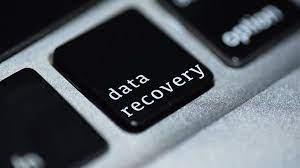You accidentally deleted something and want to recover it. Let’s look at the various things you can do to try to recover your files across various devices.
Accidentally deleting files happens to the best of us. Whether it’s an important document for work, cherished photos, or crucial data, the sinking feeling that accompanies realizing you’ve deleted something valuable is universal. However, the good news is that in many cases, deleted files aren’t lost forever. With the right tools and methods, you can often recover them successfully.
Understanding How Deletion Works:
Before delving into recovery methods, it’s essential to understand how file deletion works. When you delete a file from your computer, phone, or any other device, it’s not immediately erased from existence. Instead, the operating system simply marks the space occupied by the deleted file as available for new data.
Until that space is overwritten by new information, there’s a good chance the deleted file remains intact.
Precautions Before Recovery:
Before attempting to recover deleted files, it’s crucial to take some precautions to maximize your chances of success:
- Stop Using the Device: If you’ve accidentally deleted a file, refrain from using the device as much as possible. Continued use increases the likelihood of overwriting the deleted data.
- Check Recycle Bin/Trash: On Windows and macOS, deleted files often end up in the Recycle Bin or Trash, respectively. Before resorting to other methods, check these locations first.
- Backup: Regularly backing up your important files is the best defense against data loss. If you have a backup, recovering deleted files becomes significantly easier.
Options for Recovering Deleted Files:
Restore from Backup:
- If you’ve backed up your files using a cloud service, external hard drive, or software solution, restoring from backup is often the simplest and most effective method. Most backup solutions allow you to selectively restore specific files or folders.
Using File Recovery Software:
- When files are deleted from your device, they’re not immediately wiped from the storage. File recovery software can scan the storage for remnants of deleted files and attempt to recover them.
- Popular file recovery software includes Recuva, EaseUS Data Recovery Wizard, and Stellar Data Recovery. These programs offer user-friendly interfaces and various scanning options to suit different needs.
Utilizing System Restore Points – Windows
- Windows users can take advantage of System Restore Points to revert their system to a previous state, including recovering deleted files. However, this method only works if you’ve enabled System Restore and created restore points before the file deletion occurred.
Check Temporary Files:
- Sometimes, when you edit a file, temporary copies are created. These copies might still be available even if the original file is deleted. Check temporary folders or use specialized software to recover temporary files.
Seek Professional Help:
- If all else fails or if the data is particularly crucial, consider seeking assistance from professional data recovery services. These services have specialized equipment and expertise to recover data from physically damaged devices or in cases where software solutions prove inadequate.
Tips for Successful Recovery:
- Act Quickly: The sooner you attempt to recover deleted files, the higher the chances of success, as the likelihood of overwriting deleted data decreases.
- Avoid Writing New Data: Until you’ve completed the recovery process, avoid saving or downloading new files to the device to prevent overwriting deleted data.
- Use Reliable Software: When using file recovery software, opt for reputable and trusted programs to minimize the risk of further data loss or damage.
- Regularly Back Up Your Files: Prevention is always better than cure. Make it a habit to regularly back up your important files to prevent data loss in the first place.
All is not lost
Accidentally deleting files can be a stressful experience, but it’s not necessarily the end of the road for your data. With the right knowledge and tools, you can often recover deleted files successfully. Remember to act quickly, use reliable methods, and take precautions to avoid further data loss. And above all, make regular backups of your important files to minimize the impact of accidental deletions in the future.
What to read next?
- How to make your Morning Routine Successful
- Top 7 Instant Pots: Understanding the Many Different Models and Choosing the Right One for You
- ChatGPT FAQs, Troubleshooting, Advanced Features, and Practical Applications
- Understanding ChatGPT vs GPT-4 vs DALL-E – When do you use which one?
- 10 Tips for using ChatGPT + a detailed example of how a student can use ChatGPT for school projects.
- Ashwagandha Mental Health Benefits for teens and adults.
- 3 Fish Taco Recipes: Baja-style, Chipotle, and Blackened. Which is your fav?
- Google Bard vs ChatGPT – which one is best?
- The 5 Best Sous Vide Machines
- Traeger Flatrock Grill vs Blackstone Griddle

